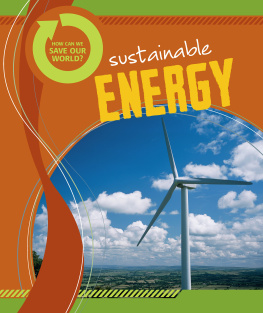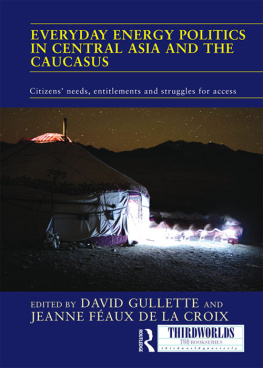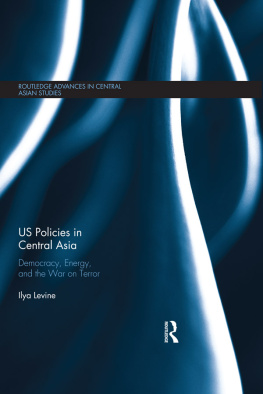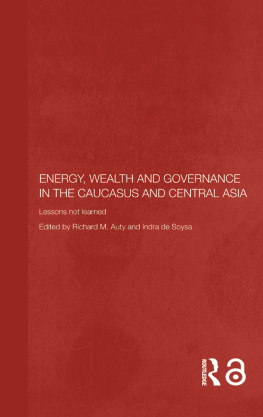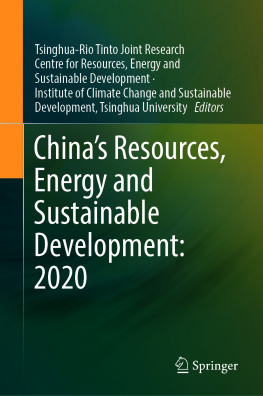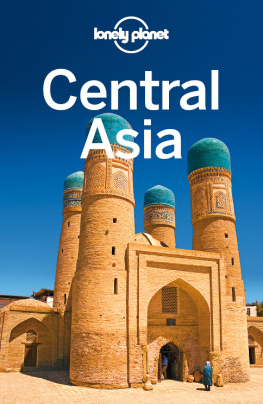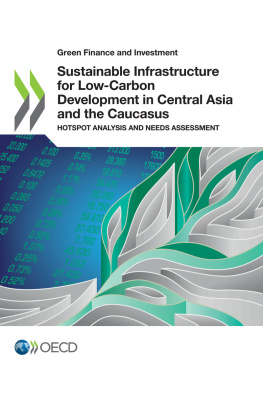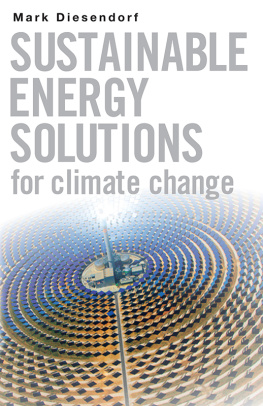
Sustainable Energy in Central Asia
This book argues that sustainable energy development represents a new frontier for many transitional economies, including those countries that are well endowed with traditional energy resources, as exemplified by the case of Uzbekistan in Central Asia.
The book highlights the challenges and issues faced by the energy sector in countries that are undergoing a transition from government-led economic models to open market economies. Using Uzbekistan as a case study, the book demonstrates these challenges, as well as opportunities of being part of an increasingly interconnected global market, to show how governments can ensure inclusive economic growth and build pathways toward sustainable development by deploying renewable energy sources (RES). By applying the Quadruple Bottom Line strategy as a conceptual framework to evaluate social, economic, and environmental benefits and governance as a key dynamic component, the book includes recommendations for implementing a transition strategy to renewable energy consumption for developing countries and offers insights into ways of dealing with government policy in post-Soviet countries.
Presenting a holistic approach to promoting RES deployment in Uzbekistan and elsewhere, this book will be of interest to researchers interested in energy transition in developing countries, development economics, Central Asian politics, and the management of natural resources and climate-change issues.
Nigora Djalilova is a research associate at the University of Tsukuba, Japan.
Central Asia Research Forum
Series Editor: Harun Yilmaz
Other titles in the series:
National Identities in Soviet Historiography
The Rise of Nations under Stalin
Harun Yilmaz
Identity and Memory in Post-Soviet Central Asia
Uzbekistans Soviet Past
Timur Dadabaev
Migration and Identity in Central Asia
The Uzbek Experience
Rano Turaeva
The Management of Public Services in Central Asia
Institutional Transformation in Kyrgyzstan
David Scott
Xinjiang Chinas Northwest Frontier
Edited by K. Warikoo
Sustainable Energy in Kazakhstan
Moving to Cleaner Energy in a Resource-rich Country
Edited by Yelena Kalyuzhnova and Richard Pomfret
Eurasia and India
Regional Perspectives
Edited by K. Warikoo
Analysing Kazakhstans Foreign Policy
Regime Neo-Eurasianism in the Nazarbaev Era
Luca Anceschi
Sustainable Energy in Central Asia
Transition Towards Renewable Energy Sources in Uzbekistan
Nigora Djalilova
First published 2021
by Routledge
2 Park Square, Milton Park, Abingdon, Oxon OX14 4RN
and by Routledge
52 Vanderbilt Avenue, New York, NY 10017
Routledge is an imprint of the Taylor & Francis Group, an informa business
2021 Nigora Djalilova
The right of Nigora Djalilova to be identified as author of this work has been asserted by her in accordance with sections 77 and 78 of the Copyright, Designs and Patents Act 1988.
All rights reserved. No part of this book may be reprinted or reproduced or utilised in any form or by any electronic, mechanical, or other means, now known or hereafter invented, including photocopying and recording, or in any information storage or retrieval system, without permission in writing from the publishers.
Trademark notice: Product or corporate names may be trademarks or registered trademarks, and are used only for identification and explanation without intent to infringe.
British Library Cataloguing-in-Publication Data
A catalogue record for this book is available from the British Library
Library of Congress Cataloging-in-Publication Data
A catalog record for this book has been requested
ISBN: 978-0-367-62137-7 (hbk)
ISBN: 978-1-003-11007-1 (ebk)
Typeset in Times New Roman
by Apex CoVantage, LLC
Contents
1 Uzbek model of economic development and energy resources
2 Uzbekistan and its energy sector
3 RES development in Uzbekistan: a shift from passive to proactive deployment policy
4 The challenges of RES deployment in Uzbekistan: analysis of local discourses
5 Feasibility study of hybrid windsolar stand-alone energy systems using HOMER software
6 Socioeconomic impact of the deployment of renewable energy sources
7 Conclusion: green growth, a new frontier for development?
- 1 Uzbek model of economic development and energy resources
- 2 Uzbekistan and its energy sector
- 3 RES development in Uzbekistan: a shift from passive to proactive deployment policy
- 4 The challenges of RES deployment in Uzbekistan: analysis of local discourses
- 5 Feasibility study of hybrid windsolar stand-alone energy systems using HOMER software
- 6 Socioeconomic impact of the deployment of renewable energy sources
- 7 Conclusion: green growth, a new frontier for development?
Guide
% Percent
bln Billion
C Degrees Celsius
CO2/GDP Carbon dioxide emissions per unit of GDP
GJ/head Gigajoules per capita
GWh Gigawatt hours
kg Kilogram
kg/year Kilograms per year
km2 square kilometer
koe/GDP Kilogram oil equivalent per unit of gross domestic product
kWh/m2/day Kilowatt-hours per square meter per day
kWh Kilowatt-hour
L Liter
L/year Liters per year
m3 Cubic meters
mln Million
m/s Meters per second
MW Megawatt
toe Tons oil equivalent
trln Trillion
TWh Terawatt hours
USD US dollar
USD/kWh US dollars per kilowatt-hour
USD/year US dollars per year
UZS Uzbekistani som
ADB Asian Development Bank
AMP Accelerated modernization policies
BAU Business as usual
CA Central Asia
CAPS Central Asian Power System
CBU Central Bank of Uzbekistan
CCGT Combined cycle gas turbines
CO2 Carbon dioxide
CSP Concentrated solar power
EBRD European Bank for Reconstruction and Development
FiTs Feed-in tariffs
GDP Gross domestic product
GHG Greenhouse gas
HOMER Hybrid optimization for multiple energy resources
IEA International Energy Agency
IFC International Financial Corporation
INDC Intended Nationally Determined Contribution
IRENA International Renewable Energy Agency
ISEI International Solar Energy Institute
LCOE Levelized cost of energy (or Levelized cost of electricity)
LEAP Long-Range Energy Alternatives Planning system
NASA National Aeronautics and Space Administration
NGO Nongovernmental organization
NPC Net present cost
PV Photovoltaic
R&D Research and development
RES Renewable energy source
RET Renewable energy technology
TPP Thermal power plant
UNDP United Nations Development Programme
WB World Bank
1.1 Implementation of the road maps of cooperation



